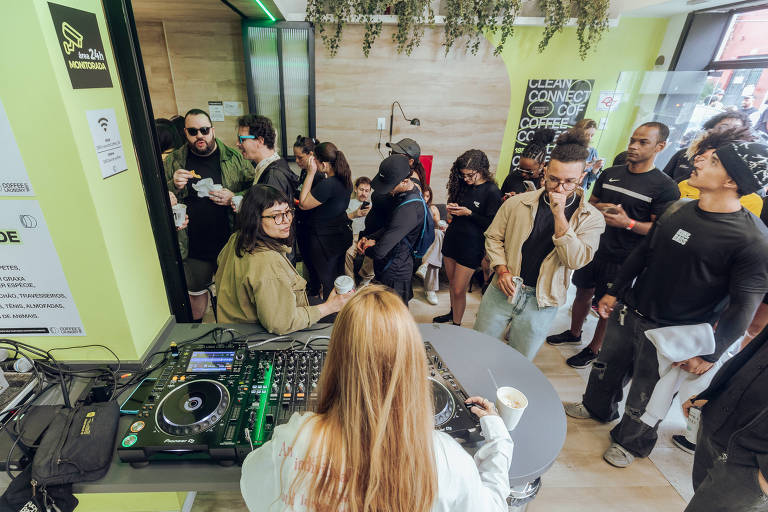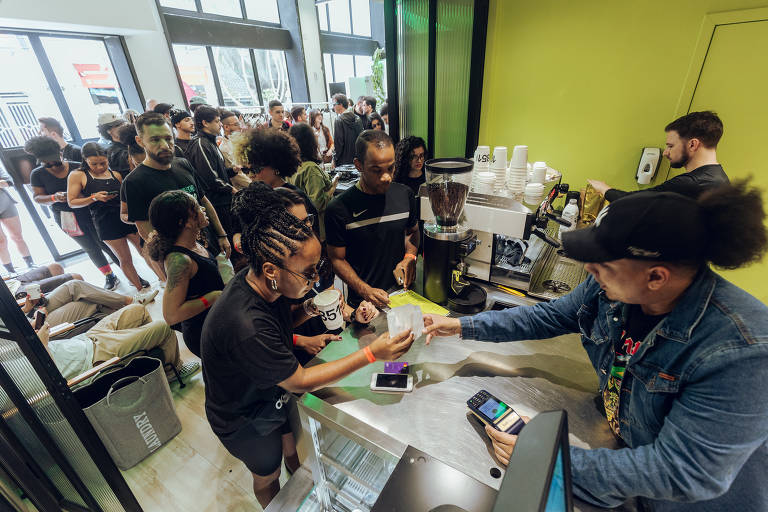'Coffee party' attracts young people looking for a healthier lifestyle and alcohol-free parties

Staying up all night at the club no longer fits into the routine of commercial coordinator Sara Holanda, 30, who wakes up at 4:30 a.m. to train every day. The search for a healthier lifestyle made the Ceará native curious to try a " coffee party " when she was in São Paulo last month.
Daytime parties with DJs in coffee shops have attracted an audience interested in alcohol-free events. "We reach our 30s and can't stand standing all night anymore. I prefer these more relaxed events, with music that we like, but that start and end early," says Sara.
At least six establishments in São Paulo have already held events of this type since the beginning of the year, and other parties have been organized in cities such as Rio de Janeiro, Curitiba and Blumenau (SC). In the capital of São Paulo, Mimosa Café, located in Pinheiros (west zone), is holding a coffee party starting at 10 am this Saturday (5).

At the end of June, a party in Higienópolis, in the central region, brought together around 50 people before 11 am, many of whom had just taken part in a race.
Physiotherapist Amanda Matos, 28, was one of those who decided to combine her training with her morning party. She says that several aspects of her life have changed since she started running six months ago. "I think my lifestyle has changed and it's a whole package: now we sleep better, eat better and exercise more."
By attending running groups, Amanda says she became friends with engineer Idaiana Moura, 32, with whom she went to a coffee party for the first time. "Although I'm quite shy, we manage to meet new people. The people are very friendly and open to conversation," says Idaiana.
The menu is usually the same as on other days, with special coffees, milk-based drinks and matcha . For snacks, there are savory snacks, cheese bread, cookies and cakes.
"This crowd has a healthier profile. Many don't want to go to night parties, drink and so on," says Rosana Santana, owner of 1851 Laundry Coffee, where the party took place in June. In the space, which also houses a laundry, while some danced, still shy, others arrived to wash clothes.
This type of event is part of a larger movement of daytime parties, which gained strength from 2024 onwards. According to Pedro Bello, a researcher at Coolinary Food Studio, a food trends consultancy, the trend was already being observed outside the country, mainly in Europe, with parties in places such as bakeries and museums.
"[Participating in these parties] is something that communicates your personality, just like the way you dress, the places you go to and what you are consuming," says Bello.
In the Brazilian context, coffee shops have embraced the proposal, offering an experience that does not revolve around alcohol, but rather coffee. "It is an opportunity to promote local coffee producers and local foods," adds the researcher.
A Datafolha survey conducted in April showed that, in a review of the last year, more than half (53%) of those interviewed who consumed alcoholic beverages said that consumption had decreased, while 12% observed an increase in consumption and 35% assessed that there had been no change.
Data analyst Lucas Paes, 24, says he has been going to electronic music parties since he was 16, but decided to change his rhythm after many sleepless nights followed by unproductive days. Today, he is a fan of morning parties. "We wake up early, run, have coffee, dance and it's not even noon yet."
He says he often accompanies his friends, entrepreneur and DJ Leonardo Paludo, 21, and music producer Igor Nathan Aurino, 22, on programs that combine physical activity and fun. "People come here for the hype, and music has a big impact on that," says Igor.
uol






